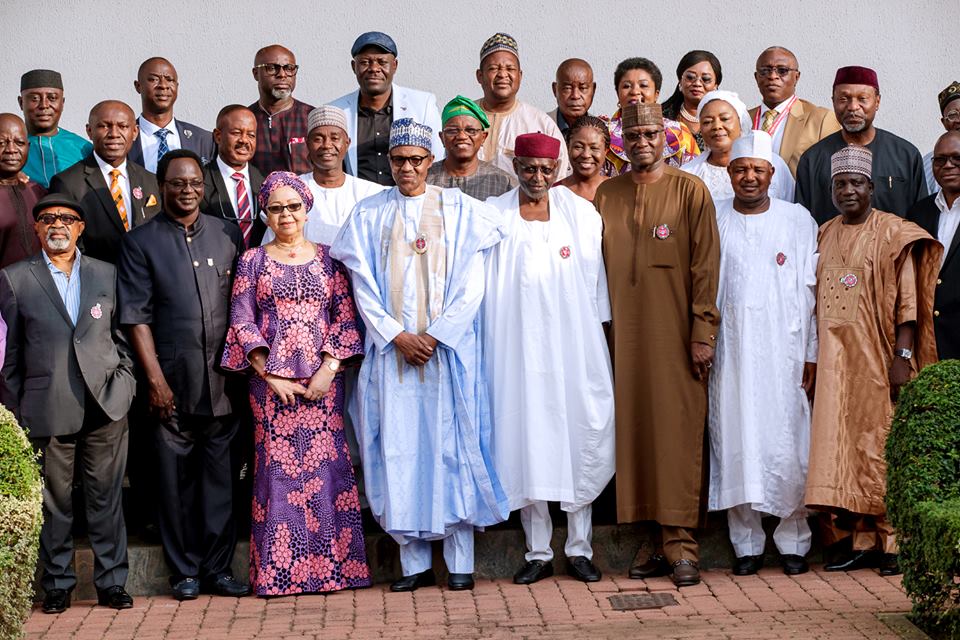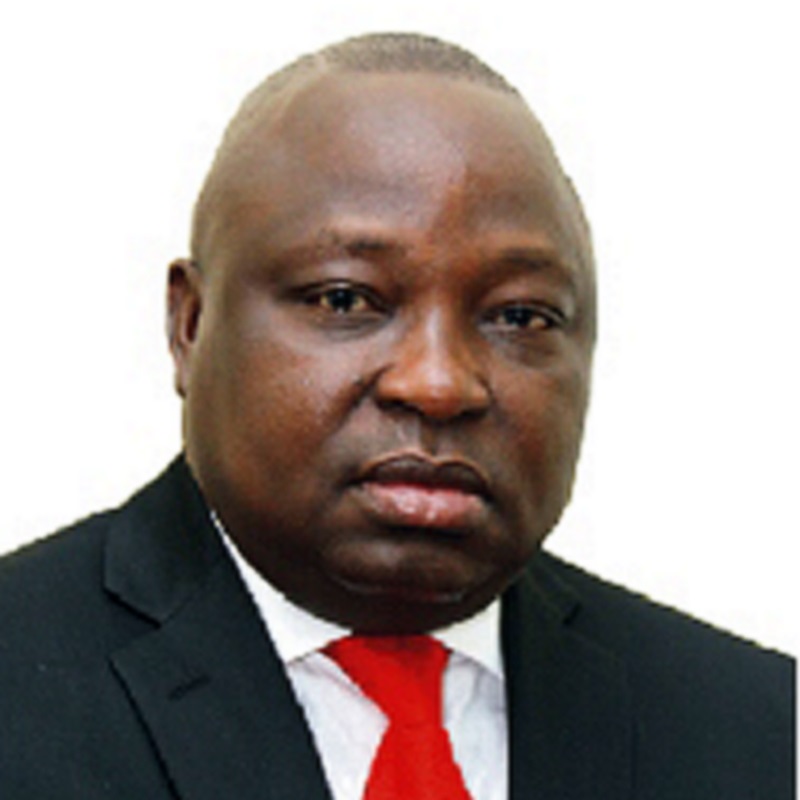Jobs/Appointments
Buhari Okays N30,000 as New National Minimum Wage

By Modupe Gbadeyanka
President Muhammadu Buhari on Tuesday approved N30,000 as the new national minimum wage in Nigeria.
On Tuesday evening, the President received report of the tripartite committee he set up in November 2017 to look into the minimum wage, which is presently at N18,000.
At a meeting held on Monday in Abuja, the committee, which comprises labour unions, organised private sector and the government, it was agreed that N30,000 will be the new wage.
Receiving the report today, Mr Buhari thanked leadership of the organized labour and private sector as well as representatives of state and federal governments for the hard work, describing the agreement as a “notable achievement.”
The President, who urged workers and their leaders not to allow themselves to be used as political weapons, promised to “transmit the Executive Bill to the National Assembly for passage within the shortest possible time,” adding that he was “fully committed to having a new National Minimum Wage Act in the very near future.”
Mr Buhari said he “will continue to engage you all in closing any open areas presented in this report. I therefore would like to ask for your patience and understanding in the coming weeks.”
According to him, the review of the minimum wage “became necessary for many reasons. The last review took place in 2011. We all know since then, the prices of key consumables have increased and the most vulnerable of our workers are struggling to make ends meet.”
“Since 2011, many changes have taken place. Nigeria rebased its GDP to become the largest economy in Africa. We reported very strong GDP growth rates and exceptional performance of our capital markets. However, these reported successes did not flow into the pockets and homes of majority of Nigerians.
“In the last three years, we focused on correcting this deficiency. We are working to create a diversified and inclusive economy.
“We are pushing to clear pension arrears owed to our retired workers with the limited resources available to us.
“We supported state governments to pay workers salary. And of course, we set up a committee in order to review the minimum wage of workers,” he said further.
President Buhari said, “The Committee Chairman highlighted some of the challenges encountered during your deliberations, especially as it relates to having a consensus position acceptable by all parties.
“I understand, on the government side, the concerns raised were around affordability – that today many states struggle to meet their existing salary requirements.
“On the side of labour, the points raised focused on the need for any increase to be meaningful.
“In a way, both arguments are valid. I want to assure you all that we will immediately put in place the necessary machinery that will close out these open areas.”
Jobs/Appointments
Japaul Picks Henry Alakhume as Acting GMD

By Aduragbemi Omiyale
Mr Henry Alakhume has been appointed as the group managing director of Japaul Gold and Ventures Plc, a statement issued on Thursday disclosed.
In the notice signed by the company secretary, Chidimma Okolo, it was stated that the appointment of Mr Alakhume is effective today, February 12, 2026.
He is to fill the vacant position left by Mr Akinloye Daniel Oladapo, who resigned with effect from October 13, 2025, with no reason given for his decision to exit the post.
In the disclosure, it was said that Mr Alakhume would remain in office until a substantive GMD is announced by the organisation.
However, the board expressed confidence in the ability of the acting GMD to steer the ship of the company “during this transition period.”
He was described as an experienced executive director of the firm, who will “ensure continuity in leadership and support the company’s strategic objectives.”
“The board of Japaul Gold and Ventures Plc wishes to inform the Nigerian Exchange (NGX) Limited, its esteemed shareholders, and the general public of the appointment of Mr Henry Alakhume as the acting group managing director of the company.
“Mr Alakhume’s appointment takes effect from February 12, 2026, and he will serve in this capacity pending the appointment of a substantive group managing director.
“Mr Alakhume is an experienced executive of the company and has demonstrated strong leadership and operational expertise in his role as Chief Operating Officer.
“The board is confident that his appointment will ensure continuity in leadership and support the company’s strategic objectives during this transition period,” the statement said.
Jobs/Appointments
VFD Group Appoints Martins Akpore to Oversee Finance, Risk Management

By Adedapo Adesanya
Nigerian proprietary investment company, VFD Group Plc, has announced the appointment of Mr Martins Akpore as Group Head for Centralised Critical Functions (CCF).
In a statement issued on Wednesday, the company disclosed that Mr Akpore would oversee the group’s centralised functions, including Finance, Audit, Risk Management, Credit and Treasury, with immediate effect.
The appointment is expected to bolster VFD Group’s financial governance and strengthen coordination across its subsidiaries as the company advances its expansion and operational efficiency drive.
“We are pleased to announce the appointment of Martins Akpore as Group Head, Centralised Critical Functions at VFD Group Plc. In this expanded strategic role, Martins will lead and oversee the Group’s centralised functions spanning Finance, Audit, Risk Management, Credit, and Treasury, effective immediately.
“Martins brings to this role a strong professional foundation and deep expertise across core financial disciplines, underpinned by his credentials as a Chartered Accountant, Chartered Tax Professional, and Certified Treasury specialist, as well as globally recognised certifications in financial modelling and valuation. He currently serves as Group Head, Treasury, where he has played a key role in strengthening the Group’s financial and capital management capabilities across the ecosystem,” it said.
“In his new capacity, Martins will be responsible for driving cohesive strategy, governance, and execution across the Centralised Critical Functions, ensuring robust risk oversight, disciplined financial operations, and alignment with the Group’s strategic priorities. He will work closely with subsidiary leadership teams to enhance institutional standards, strengthen accountability, and support cross-ecosystem decision making on critical matters,” it added.
Speaking on the appointment, the Group Managing Director, Mr Nonso Okpala, emphasised the importance of collaboration and execution discipline in delivering the firm’s Vision 2026 ambitions. In line with this, Managing Directors and senior leaders across all subsidiaries are encouraged to partner closely with Mr Akpore to ensure alignment, responsiveness, and shared ownership in achieving the organisation’s objectives.
Formerly trading on the NASD Over-the-Counter (OTC) Securities Exchange, VFD Group made an exit in October 2023 and listed on the Nigerian Exchange (NGX) Limited to strengthen its market position, boost visibility, and create more avenues to source cheap funds for expansion and growth.
Jobs/Appointments
Japaul GMD Akinloye Oladapo Resigns as Abubakar Lawal Joins Board

By Aduragbemi Omiyale
The Group Managing Director of Japaul Gold and Ventures Plc, Mr Akinloye Daniel Oladapo, has resigned from the position, a statement on Wednesday confirmed.
It was disclosed that the resignation of Mr Oladapo took effect from October 13, 2025, with no reason given for his decision to exit the position.
However, the board thanked him for “his dedicated service and valuable contributions to the growth and development of the company during his tenure,” wishing him success in his future endeavours.
In a related development, the company announced the appointment of Mr Abubakar Lawal to the board as a non-executive director effective February 10, 2026.
The organisation said this development marks a pivotal moment in its evolution, as it positions itself to capitalise on emerging opportunities in gold exploration, mining technology, and sustainable resource development across Africa and beyond.
The new board member is the co-founder of an investment banking company, GTI Group, with specialities in public sector/corporate advisory, restructuring, and finance. It pioneered a private trading floor in Nigeria and sub-Saharan Africa.
Mr Lawal has, over the last three decades, contributed immensely to the growth and development of investment banking in Nigeria. He has led various landmark transactions, some of which involved corporate restructuring and recapitalisation of publicly-quoted companies like International Breweries Plc, Eterna Plc, Wema Bank Plc, Morison Industries Plc, and state/sub-national accounts, among others.
An alumnus of Harvard Business School, he has a strong finance background, built on international relationships with local expertise. He is value-focused and quick to see diamonds in the rough.
-

 Feature/OPED6 years ago
Feature/OPED6 years agoDavos was Different this year
-
Travel/Tourism10 years ago
Lagos Seals Western Lodge Hotel In Ikorodu
-

 Showbiz3 years ago
Showbiz3 years agoEstranged Lover Releases Videos of Empress Njamah Bathing
-

 Banking8 years ago
Banking8 years agoSort Codes of GTBank Branches in Nigeria
-

 Economy3 years ago
Economy3 years agoSubsidy Removal: CNG at N130 Per Litre Cheaper Than Petrol—IPMAN
-

 Banking3 years ago
Banking3 years agoSort Codes of UBA Branches in Nigeria
-

 Banking3 years ago
Banking3 years agoFirst Bank Announces Planned Downtime
-

 Sports3 years ago
Sports3 years agoHighest Paid Nigerian Footballer – How Much Do Nigerian Footballers Earn











